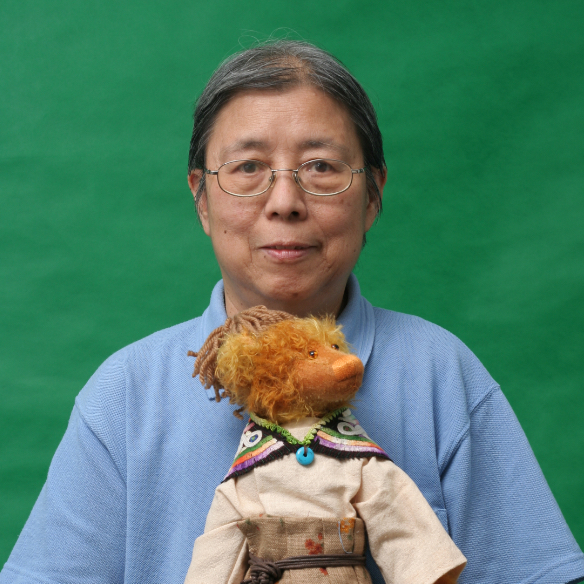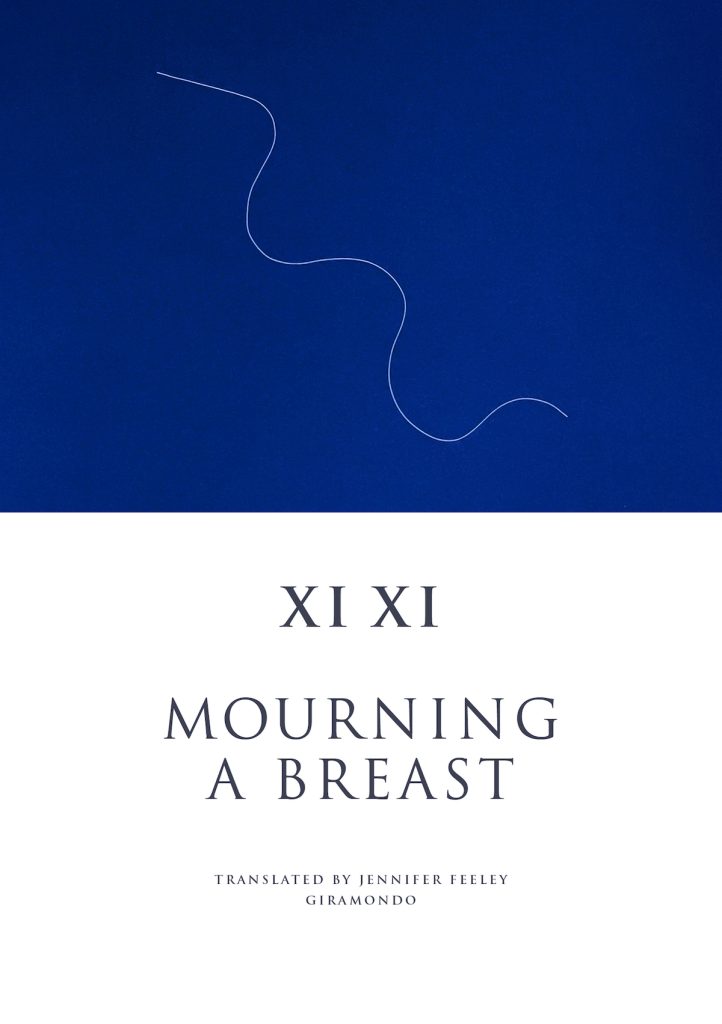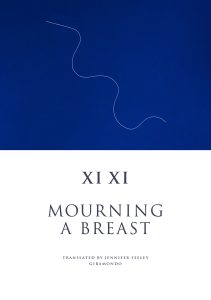Translator note: Jennifer Feeley on Xi Xi’s Mourning a Breast
An excerpt from translator Jennifer Feeley’s afterword in Xi Xi’s Mourning a Breast (July 2024). The book is the first English language translation of Xi’s groundbreaking work of autofiction, first published in China in 1992.
Xi Xi (西西, also known as Sai Sai) was one of the most beloved and celebrated authors in the Sinosphere. Though she published nearly forty books in her lifetime, spanning a wide range of genres, until recently she has been largely under-served in translation. Officially named Cheung Yin, she began publishing under the pen name Xi Xi in 1960, inspired not by the name’s sound or meaning but by the visual appearance of the Chinese characters: the character 西 evokes the image of a girl in a skirt with her legs akimbo in a hopscotch square, and the character’s doubling suggests the movement of skipping from one square to another, just as frames in a film create an illusion of motion. This rationale for Xi Xi’s pen name is characteristic of the joy and whimsy that her writing exudes.
…
In 1989, Xi Xi was diagnosed with breast cancer, and she began to write Mourning a Breast intermittently during her treatment and recovery. Published in 1992 in Taiwan, the book was received as the first literary work to chronicle a Sinophone woman writer’s journey with breast cancer. It was a success with both critics and readers: the China Times in Taiwan named it one of the best ten books of 1992, and it won United Daily’s Readers Best Book of the Year Award. It was loosely adapted as a film in 2006 (2 Become 1, directed by Law Wing Cheong), and a simplified Chinese edition was published in mainland China in 2010 by Guangxi Normal University Press.
Although Xi Xi’s cancer never returned, the damage she had sustained in her right hand from one of the treatment procedures led to a gradual loss of mobility; by 2000, her right hand was fully non-functional, and she trained herself to write and work with her left hand. As a form of physical therapy, Xi Xi began to sew and soon developed an interest in handicrafts, building dollhouses and making cloth dolls and stuffed animals. She exhibited many of these works publicly, and under the name of Ellen Cheung she was named the Designer’s Collection Champion at the second Hong Kong Teddy Bear Awards. She also transformed these hobbies into books, such as The Teddy Bear Chronicles, a playful photographic showcase of handmade teddy bears modelled after figures from Chinese history and Western culture, and The Monkey Chronicles, a unique cultural history of monkeys, featuring photos of hand-sewn puppets with accompanying text, designed to heighten public awareness about conservation.
…
One of the first Chinese-language works about breast cancer, Mourning a Breast was considered groundbreaking for its time, delving into both the physical and psychological responses to the disease, exposing common myths about breast cancer and confronting the shame often associated with it. Likewise, Xi Xi’s exploration of the gendered aspects of the disease, especially what it means to lose a part of the body so traditionally tied to one’s gender and sexual identity, could also be viewed as radical. And yet, certain elements of the book may seem dated to the contemporary reader. In this regard, it is important to view the text as a cultural product of the early 1990s, specifically pre-handover, colonial Hong Kong, acknowledging that there have been huge advances in medicine and science and changing understandings of sex and gender. Though one of Xi Xi’s aims in writing this book was to encourage people to look after their health, one should not turn to this book for specific medical advice. Still, more than three decades after its initial publication, Mourning a Breast continues to be a source of encouragement and companionship to readers, with insights about illness and body literacy that remain not only relevant but profound.
…
Of course, the guiding light behind my translation has been Xi Xi herself. I had very much hoped that she would have seen this book come to fruition with her own eyes. I am honoured that she trusted me with her words, allowing me to transport her extremely personal story into English. Even more than that, however, I cherish her friendship, and I am heartened that her gentleness and warmth live on through her writing. Xi Xi was unfailingly compassionate, generous, observant, unassuming and funny, and her love for her city, especially its young people, never wavered. When I returned to Hong Kong in July 2023 for the first time since the Covid-19 pandemic, I visited Xi Xi’s final resting place at the Diamond Hill Garden of Remembrance, joined by friends and writers Ho Fuk-yan, Stuart Lau, Louise Law Lok-Man, Lawrence Pun and Eva Wong Yi. As we paid our respects to the modest memorial plaque displaying her legal name and black-and-white photo, we agreed that she needed some miniature toys to accompany her. Afterward, we ate lunch at a dim sum restaurant overlooking Victoria Harbour in the Cultural Centre that Mourning a Breast describes as resembling a bathroom.
As Xi Xi contemplates in the preface, ‘The term “mourning” actually suggests that while we can’t undo the past, we can focus on the future and hope for rebirth.’ This book is not only about mourning a breast, but also mourning an ever-changing Hong Kong.




